Understanding Hospice General Inpatient Care (GIP): Why and When It’s Appropriate

Explore why and when Hospice General Inpatient Care (GIP) is appropriate, Medicare compliance, eligibility, and what to do if a patient is ineligible.
Navigating Family Denial: Supporting Loved Ones in Terminal Care

When a family can't accept that their loved one is dying, it creates additional stress during an already challenging time. This article offers guidance on communicating with denial, supporting the patient, managing family dynamics, and finding professional help. Learn practical strategies to navigate this sensitive situation with compassion and understanding.
Hospice Inpatient Care: GIP vs. Facility-Based Options

Discover the differences between hospice general inpatient care (GIP) at a hospital and inpatient care at a facility without a GIP level. Understand eligibility, benefits, and when to choose each type of care for your loved ones.
Understanding Hospice General Inpatient (GIP) Care: Dispelling Common Misconceptions

This comprehensive article delves into Hospice General Inpatient Care, debunks common misconceptions, and explains its importance in end-of-life care.
Achieving HCI Excellence: The Ten Moments That Matter Most in Hospice Care
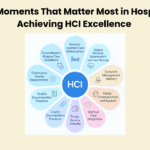
Transform your hospice's quality outcomes with Jose Escobar's proven Polaris 10/10 HCI Execution Framework. This comprehensive guide reveals the ten critical moments that drive hospice excellence and offers practical strategies for executives and clinicians to achieve perfect HCI scores.
When Love is Not Enough: Addressing the Hidden Crisis of Hospice Family Caregivers

Caring for a terminally ill loved one at home is an incredibly challenging and emotional journey for family caregivers. This guide acknowledges the struggles you may face and offers compassionate solutions. It explores valuable resources, such as end-of-life doulas, PACE programs, and professional home care services, all designed to help ease your burden and provide support during this difficult time. You are not alone in this experience; there are ways to find relief and comfort as you navigate these profound challenges.
How Legacy Projects Create Healing Pathways to Closure for Patients and Families

Legacy projects offer powerful pathways to closure for both patients facing end-of-life and their families. From memory quilts to ethical wills, these meaningful activities transform difficult goodbyes into lasting connections, reduce anxiety, and provide comfort during grief while preserving precious memories.
Making Informed POLST Decisions: A Compassionate Guide for Patients, Families, and Healthcare Teams
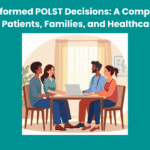
This comprehensive guide helps patients, families, and healthcare professionals confidently navigate POLST decisions. Learn the essential steps, understand your options, and ensure your end-of-life care wishes are honored through proper planning and communication.
The Unsung Heroes of Healthcare: How Palliative Care Nurses Transform Patient Care Beyond Terminal Diagnoses
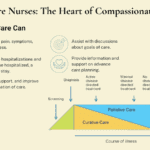
Palliative care nurses serve as the cornerstone of compassionate healthcare, providing comfort and support to patients with serious illnesses at any stage—not just at end of life. These dedicated professionals bridge the gap between medical treatment and holistic care, ensuring patients and families receive comprehensive support through their healthcare journey.
Palliative Care Awareness: What Older Adults Want for Serious Illness Care

A new Age-Friendly Insights Poll reveals that adults 50 and older support palliative care once they understand what it offers. This article explores the poll findings, discusses the importance of palliative care education, and highlights key preferences of older adults regarding serious illness planning and care.
Bridging the Gap: Palliative Care’s Role in Supporting Rare Disease Patients
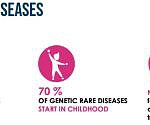
Explore the crucial role of palliative care in supporting patients with rare diseases. Learn how this specialized approach can enhance quality of life, manage complex symptoms, and provide essential support for patients and caregivers.
Understanding Mild Cognitive Impairment: The Subtle Precursor to Dementia

Mild cognitive impairment (MCI) is a condition characterized by cognitive decline that is more significant than expected for an individual of age but not severe enough to interfere significantly with daily life. This article explores MCI's symptoms, diagnosis, and potential progression to dementia, offering insights into prevention and management strategies.
Navigating Care Options: A Family Guide to Acute, Palliative, and Hospice Care
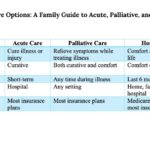
Discover when and how acute, palliative, and hospice care can help patients and families navigate serious illness. This comprehensive guide explains the differences between care types, eligibility requirements, and how to choose the correct option.
